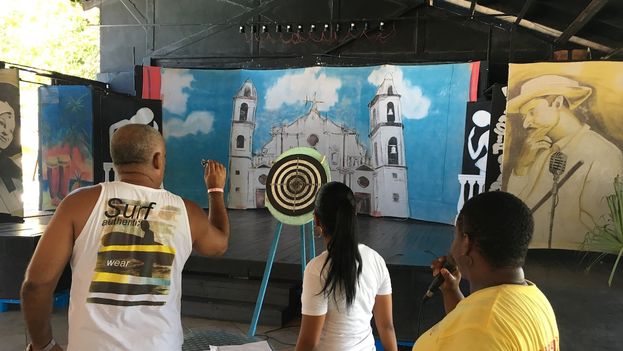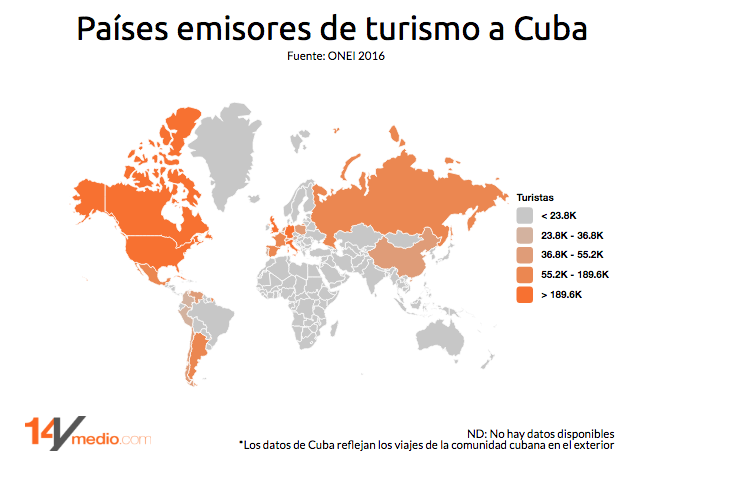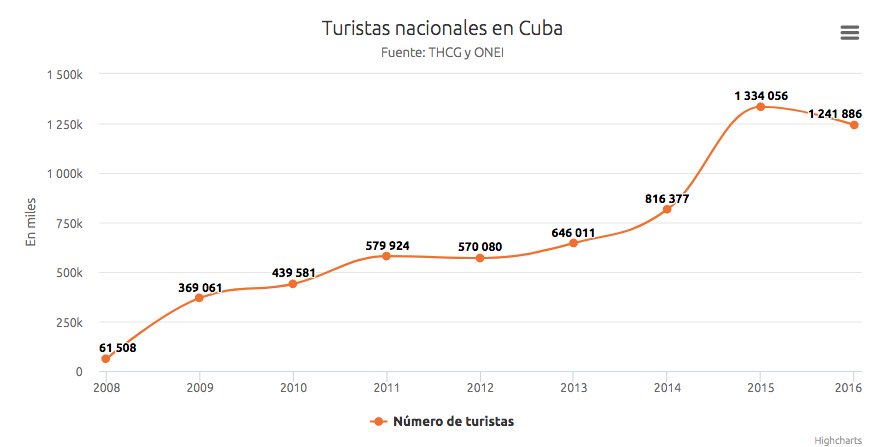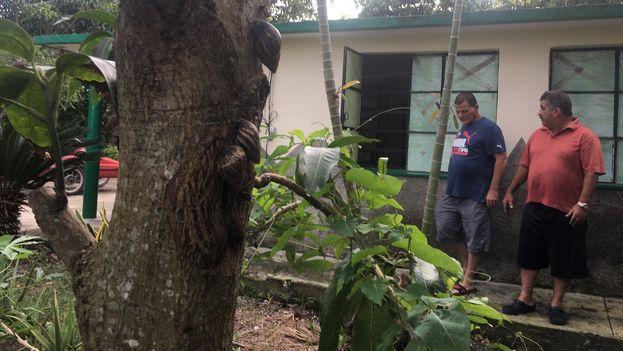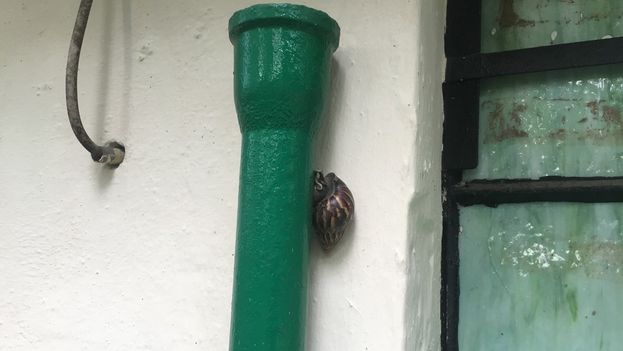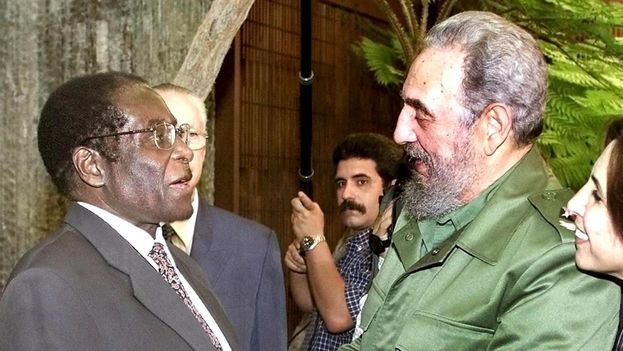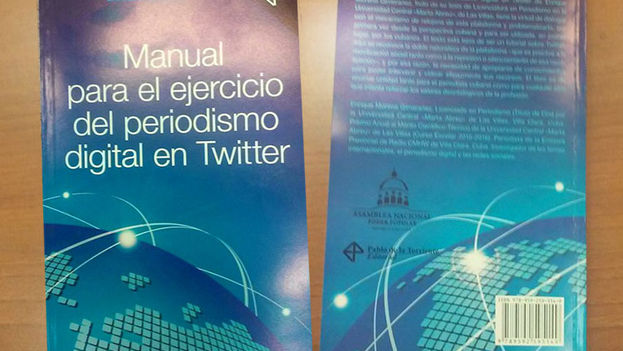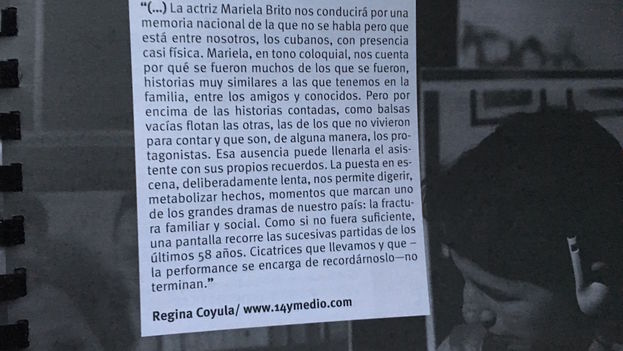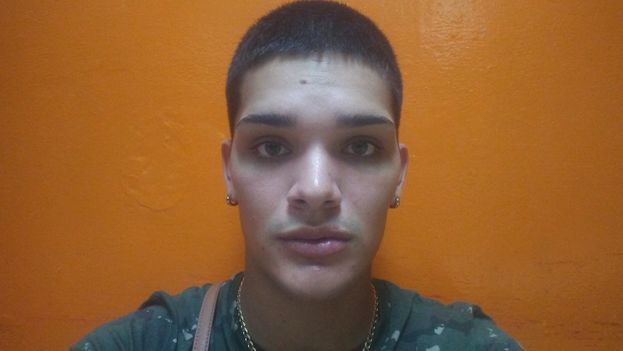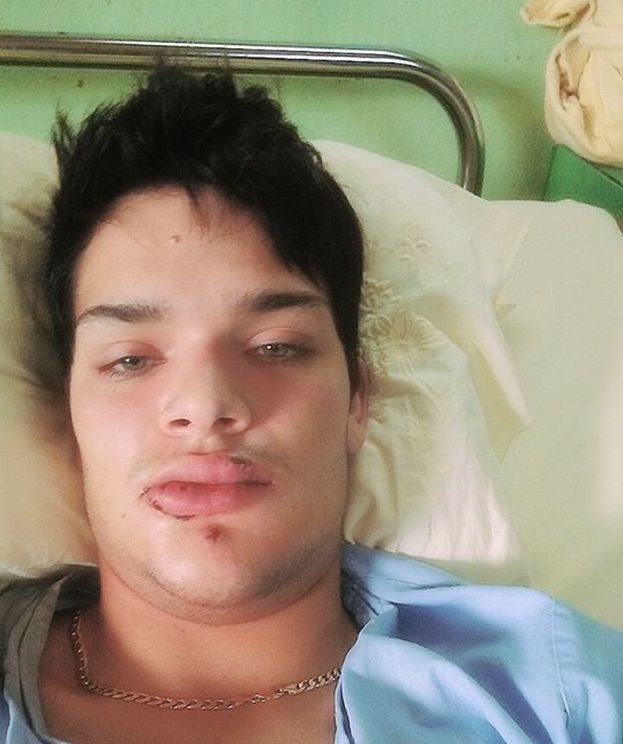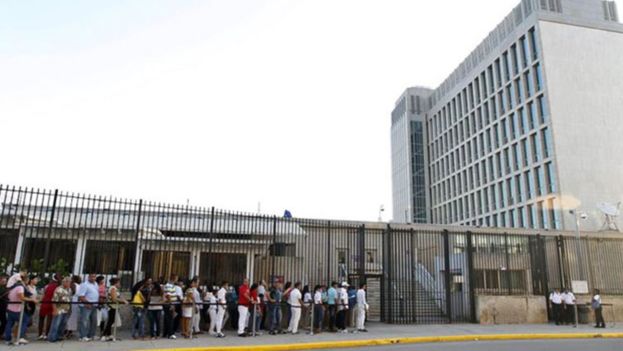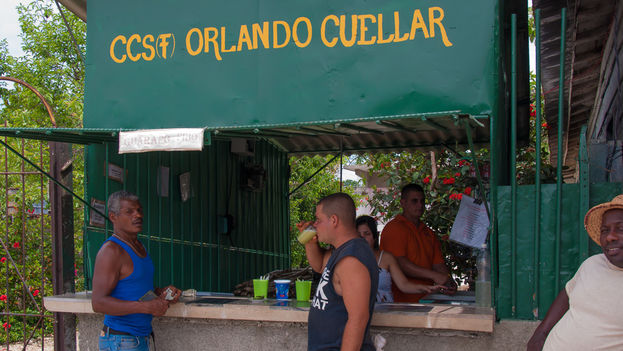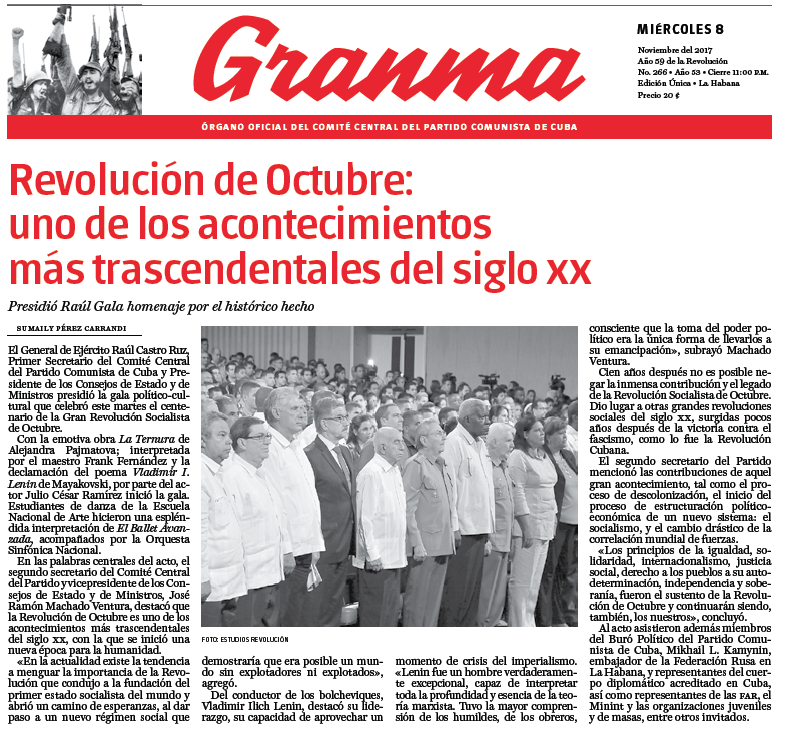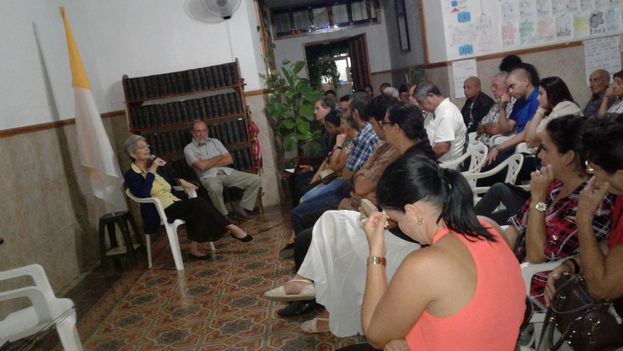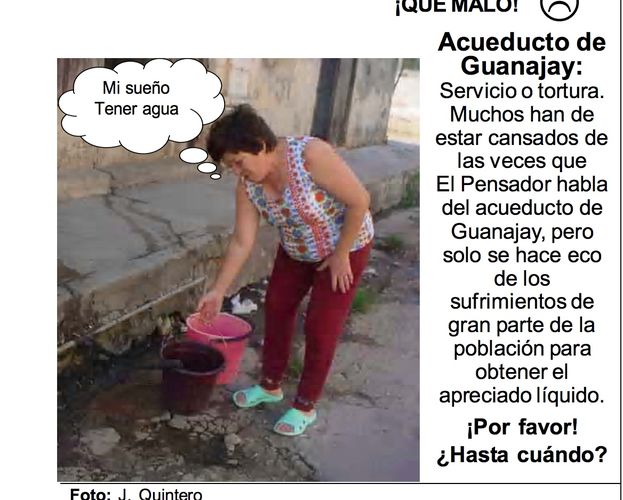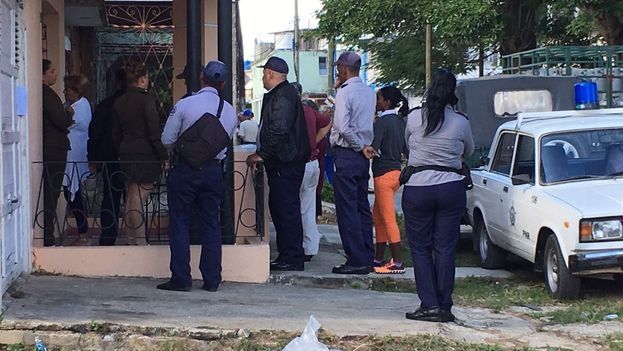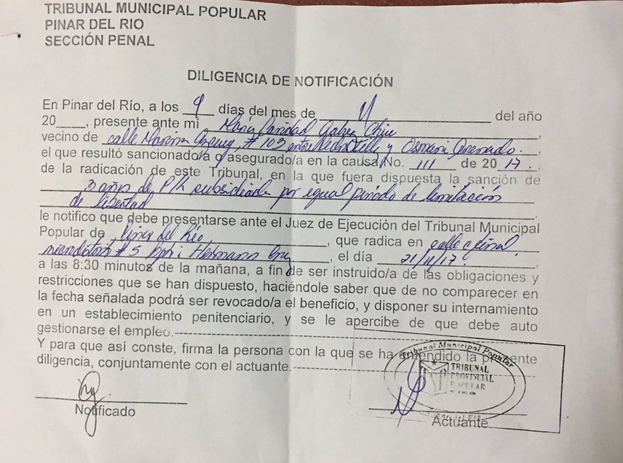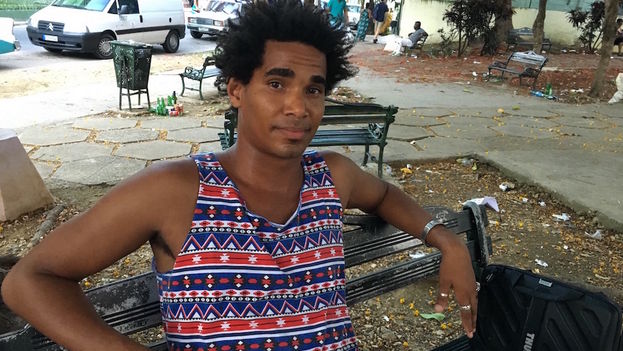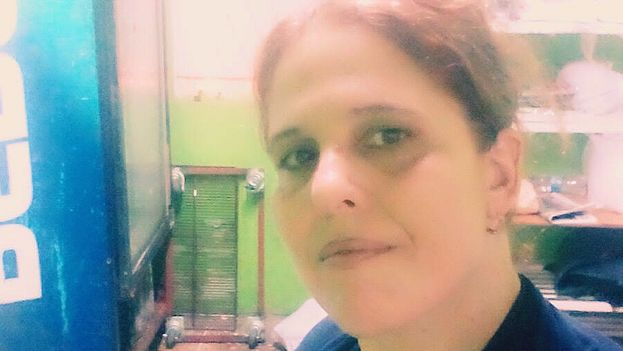
![]() 14ymedio, Yoani Sanchez, Havana, 19 November 2017 – She came to Trinidad and Tobago more than a year ago with “one pair of pants and two blouses.” Kenya Montes de Oca traveled from Placetas, in Villa Clara, with the idea of becoming a mule and living off the import business, but life pushed her towards seeking political refugee status.
14ymedio, Yoani Sanchez, Havana, 19 November 2017 – She came to Trinidad and Tobago more than a year ago with “one pair of pants and two blouses.” Kenya Montes de Oca traveled from Placetas, in Villa Clara, with the idea of becoming a mule and living off the import business, but life pushed her towards seeking political refugee status.
The villaclareña explains to 14ymedio that she still trembles when she sees a policeman in the streets of Port of Spain. During her first month in that small nation she lived illegally until she managed to get the so-called “supervisory order,” a step prior to the request for refugee status. continue reading
Trinidad and Tobago does not require a visa for Cubans, but at the airport immigration officials can deport anyone they suspect of wanting to stay illegally. Montes de Oca passed that first test without great difficulties in September 2016.
The initial idea was to buy merchandise to resell in Cuba. However, a casual conversation at the Havana airport with a dissident and State Security’s subsequent visit to her family in Placetas led her to her current situation.
“I was forced to leave absolutely everything, my house, my family, my habits,” she emphasizes, although she feels that the questions she had been accumulating about the Cuban system would have led her, sooner or later, to get into trouble on the Island.
A union leader for a decade, Montes de Oca worked at the People’s Power polling stations and served as a lay judge. “I was responsible for the security of a poultry farm until I discovered a network of embezzlement.” Reporting these irregularities brought her countless pressures.
“It was never my goal to leave everything behind,” but “circumstances decided for me,” says this woman, speaking to the press for the first time.
There are no official figures on the number of migrants from the island who remain irregularly in the neighboring country, but Montes de Oca says that “they range from deserters from the FAR (Revolutionary Armed Forces) and MININT (Ministry of the Interior), to political cadres, medical personnel, marginalized Jehovah’s Witnesses and opponents: we are a mosaic.”
Some have been luckier than others. The worst case she ever encountered is that of a young woman from Ciego de Ávila who was working to send aid to her family in Cuba. “She suffered a horrible rape by the owner of the rental where she lived, but could not report the fact because she had no papers.”
The arrival of Cubans has been on the rise since the Government of Raúl Castro implemented its Travel and Immigration Reform in January 2013 that made it easier to travel abroad from Cuba. Last August the situation escalated to a point that the two governments began to negotiate a Memorandum of Understanding on Immigration Matters to regulate the flow of migrants.
Samuel, 32, has been living for 11 months in the Trinidadian community of San Fernando. Originally from the slum area of Guanabacoa in Havana, the young man graduated a decade ago in mechanical engineering but now works as a bricklayer.
“I do not have papers but I have developed a clientele and I have friends who are helping me,” he tells this newspaper. With the nearly $600 he earns monthly, he has rented a room with a friend and sends money to his family in Cuba.
“I’m illegal, I do the worst jobs you can have here and yet I earn 50 times more than the salary I received in my country as a professional,” he argues. With the money that he sends every two weeks to his parents they have been able to “fix the roof of the house and repair the kitchen.”
His initial idea was to “earn a small capital stake” in Trinidad and Tobago to continue on to the United States, but last January he was surprised by the end of the wet foot/dry foot policy. “I thought I was going to die, but now I think this country can be a good place to stay,” he says.
Samuel is still far from being able to claim political refugee status. “I have not done the paperwork but I plan to start it in the coming months.” His greatest fear is ending up, like a friend of his from childhood, locked up for months in the Aripo detention center for foreigners.
Both Kenya Montes de Oca and Samuel have received help from the Living Water Community Center. “I did not go hungry thanks to that NGO and my first clothes I also received from them,” confirms the villaclareña.
Last June, the United Nations (UN) granted refugee status to a group of Cubans who protested for a week in front of the offices of that international organization in Trinidad and Tobago.
The majority of those who demonstrated had been waiting months for an answer to their request for political refugee status. The favorable ruling assured them of the protection of the United Nations High Commissioner for Refugees (UNHCR) and opened a door of hope for other Cubans in a similar situation.
On November 24, Montes de Oca has her appointment with the UNHCR from which she could leave as a political refugee. If she succeeds, a new stage will begin for her and she plans to remain in the Caribbean country for the time being.
She dreams of reuniting the family but her only son has been called to compulsory military service so the final reunion will be delayed. The young man wants to study to be a journalist, but she is sure that “because he has a refugee mother he will not be able to access that career” in Cuba.
From her new homeland, the villaclareña admires “the cultural mix” and the fact that people of “different religions or political positions live in harmony.” She does not hesitate to say that she will only return to Cuba “when people are not discriminated against or mistreated because of their way of thinking”.
________________________
The 14ymedio team is committed to serious journalism that reflects the reality of deep Cuba. Thank you for joining us on this long road. We invite you to continue supporting us, but this time by becoming a member of 14ymedio. Together we can continue to transform journalism in Cuba.

